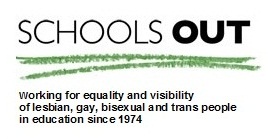This advice is for pupils, parents and carers concerning homophobic or transphobic bullying at school – and who are seeking help and redress.The Peter Tatchell Foundation (PTF) is unable to take on individual cases. We are a very small organisation, with very limited staffing and resources. But we can direct you to the right organisations so that you can get the advice and support you need.
Prepare a written statement
Write a concise summary of the problems you/your child is experiencing, documenting the homophobic or transphobic bullying that is occurring/has occurred. Set it out in separate, neatly spaced paragraphs. This should include what happened to you/your child. It should set out the facts of what happened – names, dates, times, places and who said and did what. Keep to the facts rather than including comments or opinions. State your objections to what happened and what you want done ie. what redress you are seeking and from whom. This statement can be given to any anyone that you approach for help. It will assist them to assist you.
Complain to the teacher / head teacher
Schools have a legal duty to prevent and challenge homophobic bullying and to ensure the wellbeing of all young people. Schools are not allowed discriminate against pupils because they are lesbian, gay, bisexual or transgender (LGBT) – or because their parents are LGBT. They are not permitted to ignore homophobic or transphobic bullying.All schools should have an anti-bullying policy which explicitly addresses these issues.The first point of call if you/your child experiences homophobic / transphobic bullying is you/your child’s class teacher or the head teacher of the school. Explain to them the bullying you/your child is experiencing and ask them for help and support to stop it.It is helpful for the school to have as much detail as you are able to give. This documentation of incidents will also help you if, further down the line, you need to take more formal action as a consequence of the school not resolving your bullying complaint satisfactorily.The school is most likely to be sympathetic, and the best way to resolve any difficulty that you/your child is experiencing is by working in partnership with the teachers and the head teacher at the school.
Complain to the school governors
If you/your child’s class teacher and/or the Head teacher of the school fail to provide a satisfactory remedy, you may wish to appeal to the Chair of the Board of Governors. Again, you need to be very clear about what problems you/your child is experiencing, including as many specifics as possible, and you need to specify what action you want taken.
Galop
Homophobic and transphobic bullying are hate crimes. In severe cases, they may require police intervention, either to talk to the bully and his/her parents or to talk to the school about its failure to provide a safe, welcoming space for LGBT pupils. Galop specialises in dealing with homophobic / transphobic hate crime and harassment.
They are London’s leading anti-LGBT hate crime charity but they can offer advice wherever you call from. Their website is here: http://www.galop.org.uk/
You can call their helpline on 020 7704 2040 (London) or 0800 999 5428 (National). Their email address is info@galop.org.uk
You can also report an incident online here: http://www.galop.org.uk/report/
They are located at:
Galop
Resource For London
356 Holloway Rd
London
N7 6PA
School’s Out
You could also contact School’s Out, the main organisation monitoring and campaigning against homophobia and transphobia in schools.Their website is:
http://www.schools-out.org.uk/ They can be contacted via email:
secretary@schools-out.org.uk or on chairs@schools-out.org.uk You can also phone them on 020 7635 0476 (female) or 01582 451 424 (male).
Their contact page is here:
http://www.schools-out.org.uk/?page_id=102
Their postal address is:
BM Schools Out
London
WC1N 3XX
Stonewall
Stonewall is a national LGB charity, with a specific campaign – Education for All – against homophobic bullying in schools. There is plenty of information and advice on their website and they have separate sections for parents and children/young people. See: https://www.stonewall.org.uk/supporting-schools
You can also call Stonewall for informal advice on 08000 50 20 20 or you can email the Stonewall Information Service via: info@stonewall.org.uk
Other options
You could also seek the advice and support of your local Citizen’s Advice Bureau or Neighbourhood Law Centre.
Contact your MP and local councillor
Finally, if your complaint is being ignored, you could also contact your local MP and your local councillor. You can ask them to write on your behalf to the school demanding an explanation and action.
You can find out who your elected representatives are and email them direct from this website:
http://www.writetothem.com/
You can also phone your MP’s office at the House of Commons via the main switchboard: 0207 219 3000. Ask for the MP’s secretary or researcher.
Even better, visit your local MP at their weekly advice surgery. The location, dates and times can be obtained from your local town hall or library or from the website of your local MP. Personal contact tends to get better results.Take your prepared written statement, so that your MP/councillor will have all the facts of your case at his/her fingertips.

